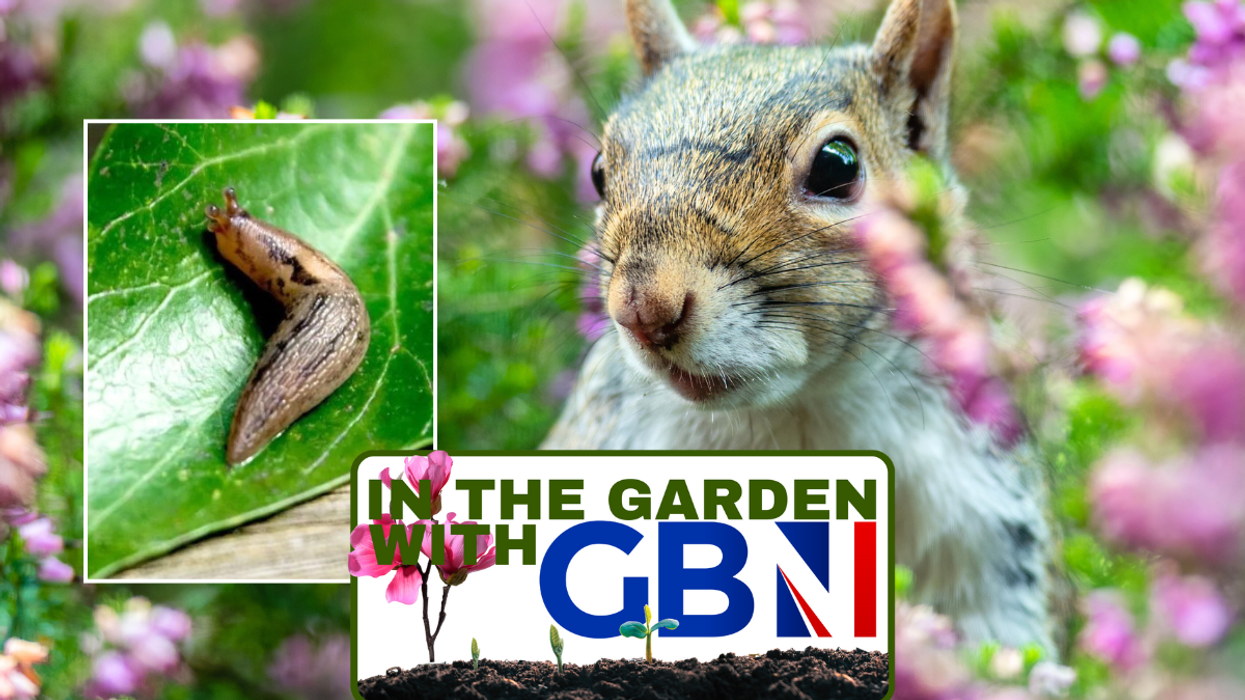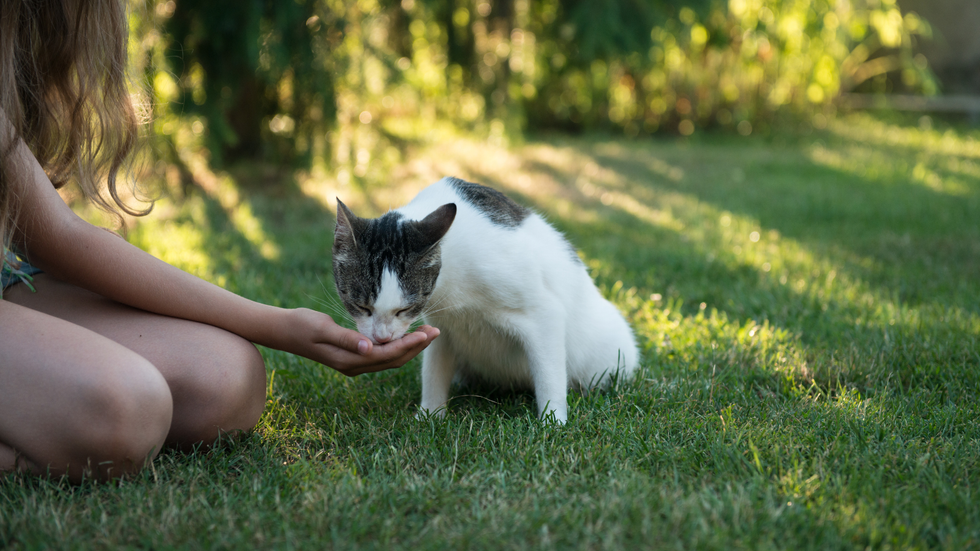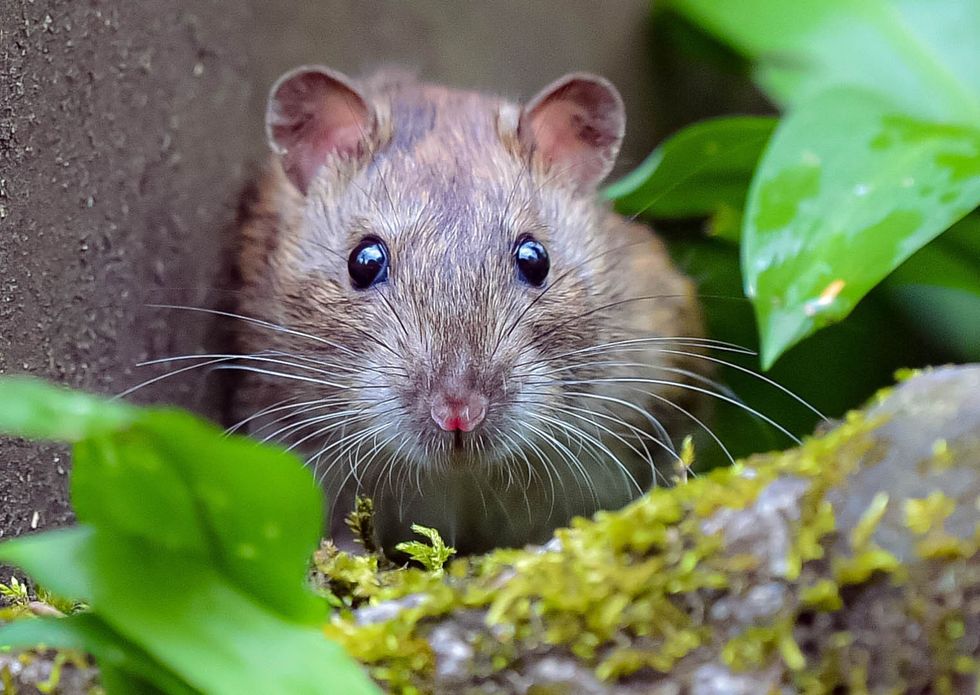In the garden with GB News: Pests - everything you need to know to protect your plants from cats, rodents, slugs and more

Experts share how to deter pests from your garden
|GETTY

GB News is sharing everything you need to know to help you make the most out of your garden. This week, we look at how to deter pests that threaten to sabotage plants
Don't Miss
Most Read
Curating a beautiful garden takes time and effort so you will want to ensure they do everything they can to stop unwanted visitors from destroying their efforts.
GB News shares everything you need to know to protect your crops from cats, rodents and slugs.
How to deter cats
Cats are beloved pets for many, but other people's cats wandering through your garden can be frustrating as they can damage plants and leave unwanted waste.
Veterinarian, MVZ and behaviourist with Catster.com Paola Cuevas told GB News how to combat this.

Homeowners may want to get rid of cats in their gardens
|GETTY
Make it physically impossible
Paola said: "A physical barrier that completely prevents the cat from reaching your garden is effective but might not be exactly eye pleasant. Fences, walls, chicken wire, and netting over certain areas or plants might all be useful and secure ways to ensure cats do not get into your garden."
Motion activated sprinklers
"We all know that most cats will avoid water, especially when trying to make their business. This method is highly effective just keep in mind that chances are you or your family members might also get wet while you learn to be mindful of them."
Ultrasonic repellents
"Ultrasonic repellents keep cats, dogs, rodents, skunks, and other pests and wildlife away from your garden. These devices emit a sound that human ears can not perceive but other animals can, and they will stay away. Nowadays even the solar-powered form of these devices is available in the market making it a breeze to install and upkeep."
Cover the soil around plants
"By placing small rocks, cone pines, or other less appealing surfaces. Cats do not like to do their business over unstable or uneven surfaces."
Add Cat Scat mats under the soil
"These plastic carpets have flexible pointy spices that are harmless for cats (and other wildlife) but will deter them from choosing your garden as their designated toilet. They can be placed under soil making them very discreet, yet effective to deter cats."
Citrus peels
"Cats have a very sensitive sense of smell and most are repelled by citric smells. Adding citrus peels all around your garden might help to deter some cats. The main issue with this effective method is that the smell wears off so the peels might need to be constantly renewed."
Add plants that cats do not like
"Rue, lavender, rosemary, and citronella are plants with strong smells that many cats do not like. By including several of these plants in your garden, you might get the cat to look for a different place to do their business."
How to deter rodents
Rodents like rats and mice are more likely to be attracted to some plants over others.
Herbs can be a good way to deter them, founder and CEO of Automatic Trap Company Blair Calder told GB News.
Plants to deter rodents
Blair said: "The best way to deter mice and rats in a garden is exclusion. Planter boxes need to have steel cloth on the bottom to deter tunnelling.
"Rats and mice don’t like to be ‘in the open’ so try to remove any runways that they have that lead them to the garden. Also, remove any harborage they may have near the garden.
"Compost piles can be magnets for rats in particular, and if this is an issue processing your compost in a rat-proof sealed plastic container as far away from the garden itself is advisable.
"Finally, it's vital that you harvest all ripe fruit and vegetables right away, don’t leave them out for the rats. Overall, it’s difficult to keep rats and mice out of a typical garden because exclusion is just too difficult to achieve.
"There are plants that rodents do not seem to eat, or rather, there are plants that they like to eat more than others. Peppers, for example, are seemingly irresistible to rats. Ripe strawberries too.
"There has been speculation that rats do not like mint and will try to avoid it. A lot of this is based on some studies that suggested as much, however the rats were exposed to massive quantities of mint, and it has not been shown to be effective in any practical way (despite lots of products being sold under this premise)."
How to trap rodents
Humanely killing rodents is sometimes the best way to get them out of your garden.
Blair continued: "The best way to deter rats and mice is to kill them - humanely. They can’t be live-trapped and moved to a new location. One way to think about it is that most mice live 25 feet in any direction their whole lives.
"They have their travel pathways, their food location, their nest and their fellow mice. To take away all four at once would be like dropping a person in another country where they don’t speak the language, have no food, water, money, or idea where they are.
LATEST DEVELOPMENTS

Homeowners can use some tricks to deter rats
| PA"The best device to kill rodents humanely (mice, rat or squirrel) is using self-resetting traps."
How to deter slugs
Slugs make the biggest impact in your garden in spring but appear in gardens year-round, provided there are plenty of crops for them to eat. Luckily, there are some ways to wade them off and protect your greenery.
Homeowners can buy slug-repellent sprays or use copper and wood pellets as deterrents. Copper gives slugs a small electric shock which encourages them to turn away. Wood pellets also cause irritation for slugs meaning they are unlikely to cross if gardeners put a barrier of this in their gardens.
Experts also flagged another way to get rid of slugs is with beer. This is something many people will already have at home. It works as slugs are attracted to beer, so creating a trap at the edge of your garden will pull them there.
Gardening expert from Garden Buildings Direct Sam Marlow shared: "Sink a shallow dish or jar filled with beer into the ground near plants that are plagued by slugs. Slugs are attracted to the beer, crawl in, and drown."
For more gardening tips, GB News shares how to grow potatoes at home. Or check out our guide with everything you need to know for beautiful, thriving irises.










